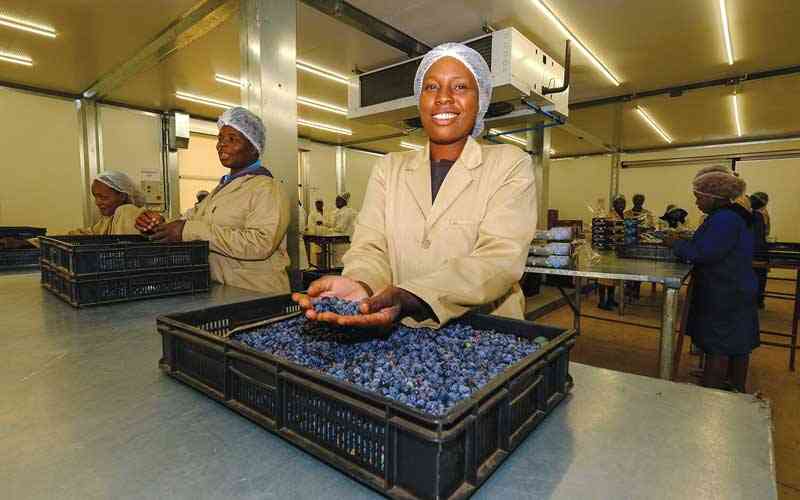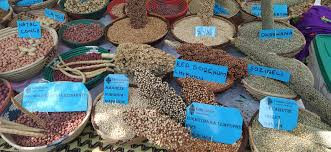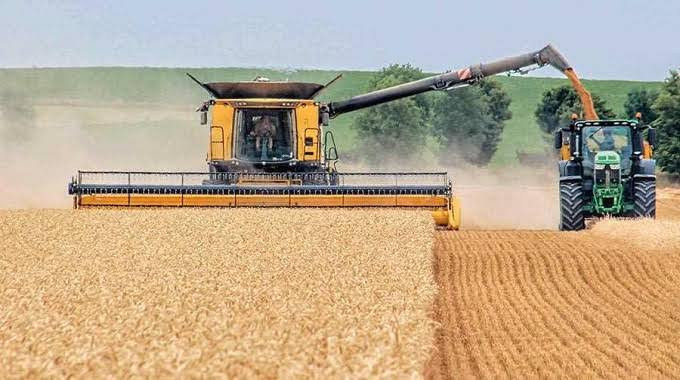
GOVERNMENT has revealed that the country can export a lot more crops than traditional top earners, amid concern that agribusiness opportunities were not being taken fast enough.
In Zimbabwe, tobacco and cotton have dominated as the top exportable crops yet in the 1980s and 1990s, the country was a major cereal and grain exporter, earning the title “the foodbasket of Africa”.
Speaking at last week’s annual CEO Africa Roundtable in Victoria Falls, Agriculture, Fisheries, Water, Climate and Rural Resettlement deputy minister Vangelis Haritatos listed several crops that could be scaled up for export.
“There is a huge gap in terms of technology in all the sub-sectors as far as boosting agriculture productivity is concerned. Zimbabwe is ideal for the production of more than 23 exportable crops and livestock commodities including maize, sorghum and other cereals, soyabeans and other oil crops, legumes, macadamia, coffee, avocados, blueberries, citrus, and other key fruit trees and crops,” he said.
“There are also emerging high-value exportable commodities such as blueberries, industrial hemp, and medical cannabis. Zimbabwe is largely an exporter of primary agricultural commodities and has great potential to increase farm incomes, grow the economy and create employment through value addition. This is a very attractive space given the current and expected sector growth trajectory.”
Haritatos said in most cases, commodities were exported as raw materials and that there was now a major drive to promote agro-processing, value addition, and beneficiation.
“As a government, we strongly believe that to achieve agri-food systems transformation, we need to change policies, mindsets, behaviour and business models. This is to ensure that our food systems are sustainable and are able to uplift the lives of smallholders’ farmers that rely on agriculture as a source of livelihood,” he said.
Some of the challenges hampering the growth of these crops into exports include shortages of fertiliser, tillage equipment, irrigation development and rehabilitation, refrigeration and transport.
- Teachers, other civil servants face off
- Veld fire management strategies for 2022
- Magistrate in court for abuse of power
- Vungu Dam water treatment and irrigation project takes off
Keep Reading
Another challenge that remains is the rising cost of farming inputs and difficulties in securing forex to scale up production.
Owing to worsening climate change since the El Nino drought of the 2015/16 agricultural season, most of Zimbabwe’s crops have seen declines in output.
“With the entire African continent having changed consumption patterns to food that is processed, this provides for a massive opportunity for our country to dominate this space,” Haritatos said.
“The need stretches from cereal, oils, horticulture, and fruit (indigenous and exotic) processing and even the potato industry where there is a huge demand for frozen chip fries. The sector has investment opportunities in the establishment of juice-making plants, livestock product processing plants, ginning, and textile manufacturing among others.”
Some of the incentives that government has put in place to explore Zimbabwe’s full and agricultural exportable commodity potential include exemption from income tax for the first five years of operations in designated Special Economic Zones.
Also, as value-added tax (VAT) is levied at 14,5%, farming inputs and equipment are at 0%, machinery and equipment are also allowed as part of equity investment.
“Foreigners are allowed to own up to 100% of their investment and repatriation is allowable up to 100% of dividends from current year’s proceeds,” Haritatos said.











